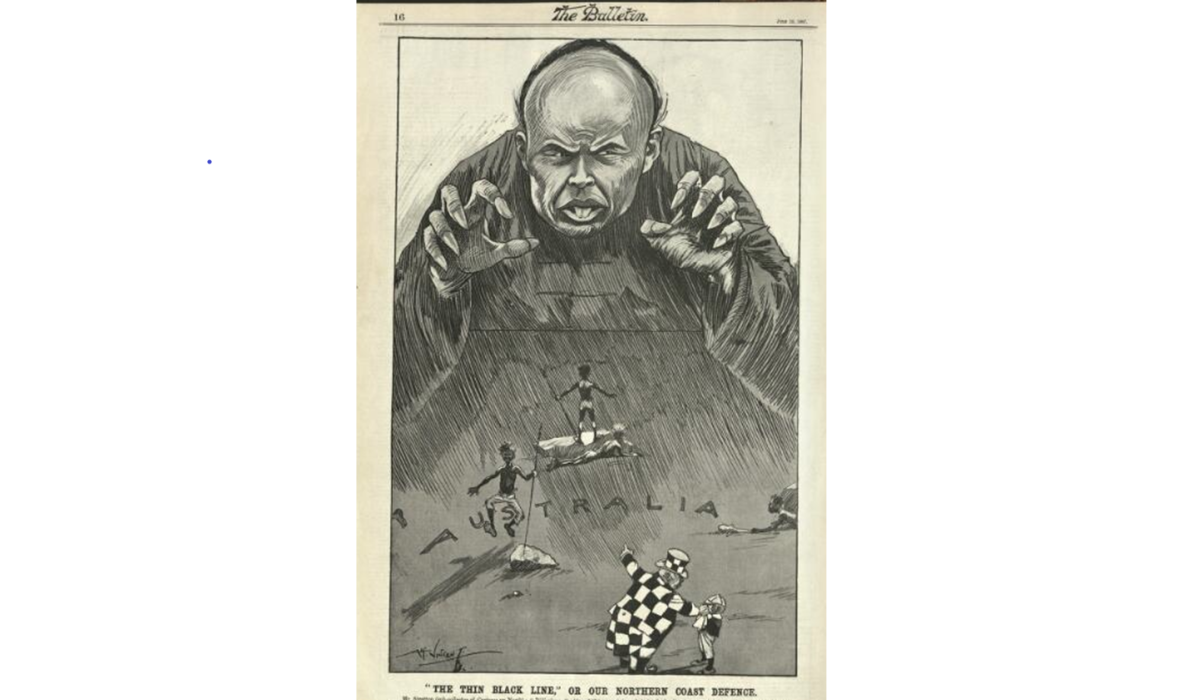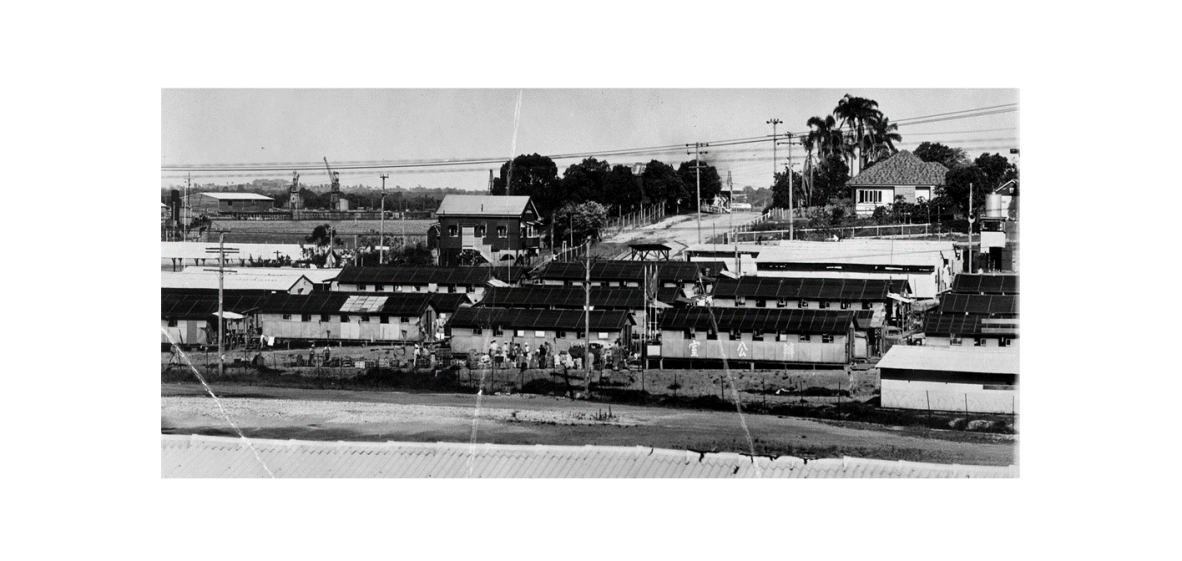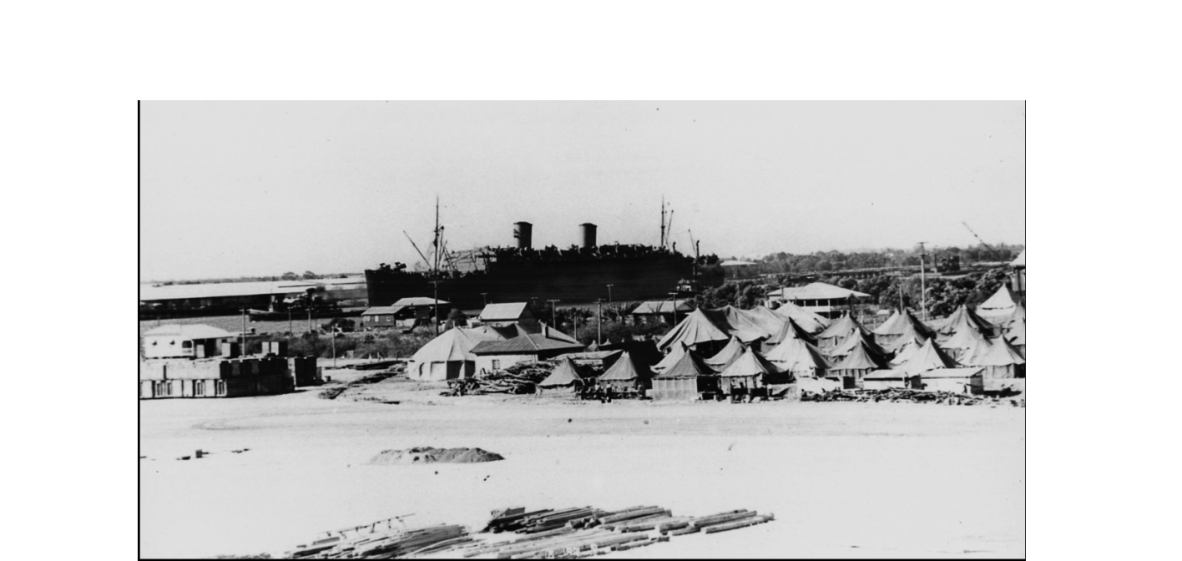The Chinese camp in Bulimba 1943-1945: fitting in
By Stephanie Ryan, Research Librarian | 10 December 2020
A consistent fear since the beginning of European Australian settlement has been that masses of Chinese were keen to populate a largely empty continent, hence the “White Australia Policy.” This concern has been particularly prominent in Queensland.
In 1943 following America’s entry into the war and the need to set up a military base in the Pacific, an influx of Chinese into Australia was allowed. A camp was established in Bulimba, on the site of the old Apollo candle factory where those Chinese gathered from around Australia came to work. The Americans employed them to build landing barges, invasion nets and other equipment at an engineering dock, and supplied accommodation there constructed on reclaimed land.
A number had come to Australia as crew on ships from the Asian region. On leave, they received lucrative job offers from the Americans to work in the Civil Construction Corps and refused to return to their vessels. Five hundred of the men were employees of the British Phosphate Commission of Nauru and Ocean Islands, and had been evacuated to Australia when the Japanese invasion threatened. The Chinese were a significant presence in Bulimba and Brisbane. Only 20% spoke English Courier Mail 14 November 1945 p5.
Hitting the news: gambling, opium, murder and beer.
Some issues repeatedly saw this Chinese community in the papers. Firstly, they were keen gamblers, playing dominoes and Chinese chequers in Hood Street, Bulimba as well as in Fortitude Valley and the City. Attempts to catch the gamblers often failed and did not result in finding much in the way of takings. Opium smoking at the camp and in the city was a persistent problem. However, it was noted that “the fines were always paid – and promptly” Courier Mail 30 June 1945 p 4. A tragedy was the death of a young Chinese man, injured while working for the Americans, who did not receive compensation, and who then took to gambling. His debts in the vicinity of £400-£900 resulted in his suicide in a Valley café Courier Mail 12 October 1944 p2. Another tragic incident was the murder of George Bow, a fruiterer at Breakfast Creek, killed for opium and money. Three accused from the Chinese camp were found guilty amidst sensational publicity.
One matter caused serious conflict with the non-Chinese community, beer. There was a limited amount available during the war and the Chinese had better access. Those finishing night shift, after a sleep, would go to the Balmoral Hotel for a drink. By the time non-Chinese arrived, after standard working hours, the beer would be in short supply. Brawls and dramatic newspaper headlines resulted.
Mr Justice Brennan and the Alien Restriction Act.
When Mr Justice Brennan visited Brisbane in January 1945, he noticed the conspicuous Chinese presence and their convictions for opium smoking, their dirty cafes and the melee over beer. He asked, “Why can able-bodied Chinese flaunt round Brisbane while our boys are being killed in defending the Commonwealth?” Courier Mail 3 January 1945 p 3.
Community response to the Chinese
In response, letters to the editor noted that the Chinese were our allies in the war, rarely committed other crimes, that cafes other than Chinese ones were dirty, and that Chinese were performing a significant role in war work as well as contributing to the Red Cross and other charitable activities. One Bulimba resident stated that “individually and collectively, the Chinese have proved themselves an asset rather than a detriment” Courier Mail 4 January 1945 p2. The Ironworkers Union pointed out the important role Chinese, directed to work in eateries, played in providing meals in Brisbane. The Union added that Chinese workers, on annual leave, unable to travel because of wartime restrictions, were, quite reasonably, moving around Brisbane. Courier Mail 15 January 1945 p3.
Certainly, the Chinese were conspicuous in their community contribution. The Bulimba Child Care Centre opened in April 1944 at a cost of £180 of which the Chinese camp contributed £170. The centre was named Wee Wing, the word, ‘Wing’ meaning everlasting. Courier Mail 21 August 1945 p4. They were also major contributors to the Miss Australia competition. Non-Chinese acknowledged them in a bereavement notice for their messages and floral tributes. Advertisements specifically requested Chinese cooks, gardeners and servants. Chinese handcrafts such as furniture, napery, jade and ivory work were in demand. When Indonesian seamen were refusing to assist Dutch vessels, the Chinese contributed to their support.
In January 1945 many from the Chinese camp moved north and there was a sudden glut of poultry on the market because they had been major consumers of it in Brisbane.
At the end of the war
Two Chinese carry a trunk with a pole p1 Lee Chung Ngee crates luggage for China p3
Telegraph 1 December 1945
Once the war ended, there were moves to return them to China. At this point those distributed around the State were moved to Brisbane, making a group of around 1500. After 31 October 1945 the U.S. Army surrendered responsibility for them and they became the responsibility of the Commonwealth Government. The Government found it difficult to get them to pay income tax, to be paid as a lump sum covering the time they had been employed in Australia. Many Chinese claimed that they had sent much of their earnings home where the country and their families were in dire straits. However, as the Chinese prepared to leave, they stocked up on clothing to the point that it could have been acquired only on the black market. Soap, medical supplies and food were high on the luggage list too.
The camp was disbanded, and the Chinese left in December on ships, quartered in language groups. Brisbane residents expressed their regrets in the newspapers Courier Mail 14 November 1945 p 2.
More information
One Search - http://onesearch.slq.qld.gov.au
Trove (Newspapers & Gazettes) - https://trove.nla.gov.au/
Comments
Your email address will not be published.
We welcome relevant, respectful comments.


